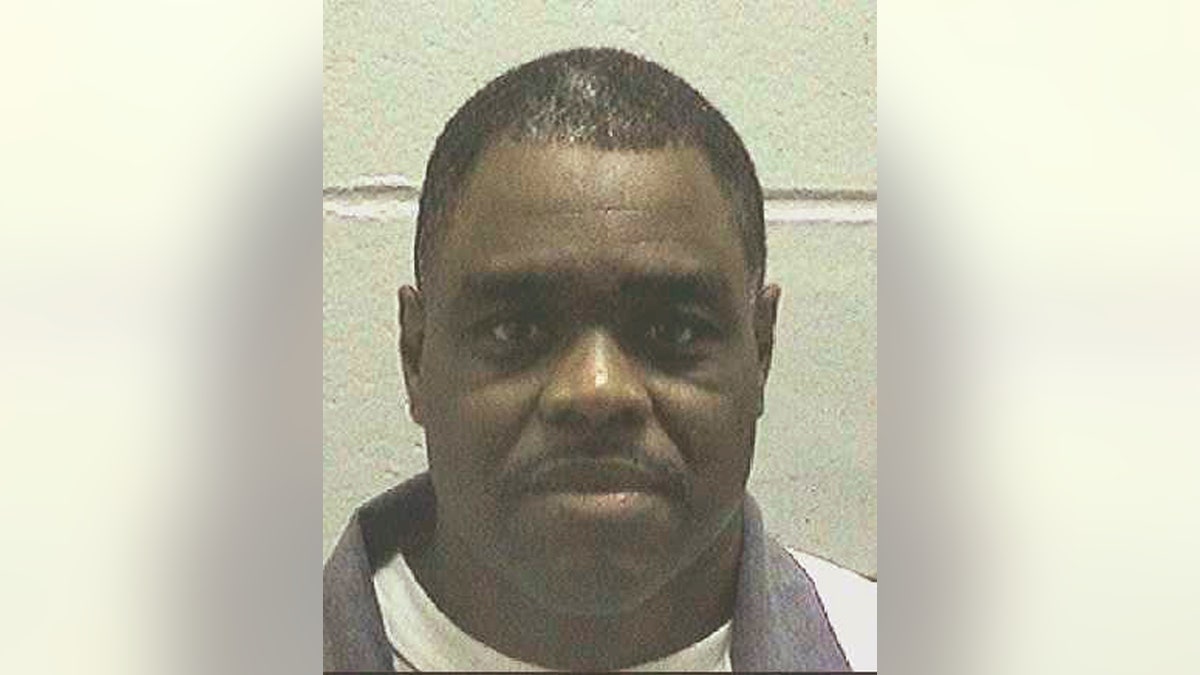
FILE - This undated file photo made available by the Georgia Department of Correction shows Scotty Garnell Morrow, who is set to die Thursday, May 2, 2019. When Morrow killed his ex-girlfriend and her friend nearly 25 years ago, his actions were spontaneous and emotionally fueled and shouldn't be punished by death, his lawyers argue. The State Board of Pardons and Paroles has scheduled a clemency hearing for Wednesday, May 1, 2019, and on Tuesday released a declassified clemency application submitted by Morrow's lawyers. (Georgia Department of Corrections via AP)
ATLANTA – When a Georgia man killed his ex-girlfriend and her friend nearly 25 years ago, his actions were spontaneous and emotionally fueled and shouldn't be punished by death, his lawyers argue.
Scotty Garnell Morrow, 52, is set to die Thursday at the state prison in Jackson in what would be Georgia's first execution this year. He was convicted of murder in the shooting deaths of his ex-girlfriend Barbara Ann Young and her friend Tonya Woods at Young's Gainesville home in December 1994. A third woman was also shot but survived.
The State Board of Pardons and Paroles has scheduled a clemency hearing for Wednesday and on Tuesday released a declassified clemency application submitted by Morrow's lawyers. The parole board is the only authority in Georgia that can commute a death sentence.
Morrow and Young had been dating about six months when she broke it off in December 1994 because of his abusive behavior, according to a Georgia Supreme Court summary of the case.
Young was in her kitchen with two friends and two of her children when Morrow arrived at her house on Dec. 29 to try to win her back.
The pair argued and Woods told Morrow to leave, saying Young wanted nothing to do with him anymore. He yelled at Woods, pulled out a handgun and began shooting, hitting Woods and severing her spine, the summary says.
Morrow also shot Young's other friend, LaToya Horne, in the arm.
Morrow followed Young to her bedroom, where he beat her and then followed her into the hall, grabbed her by the hair and fatally shot her in the head, the summary says. Young's 5-year-old son, hiding in a nearby bedroom, saw Morrow shoot his mother.
Morrow returned to the kitchen, fired a fatal shot under Woods' chin and shot Horne in the face and arm before fleeing, the summary says. Young and Woods died, and Horne was severely wounded but was able to seek help.
Morrow was arrested within hours and confessed.
Spontaneous killings fueled by emotions are rarely punished by the death penalty, and commuting his sentence to life in prison, with or without possibility of parole, would bring his sentence more in line with other people convicted of murder under similar circumstances, his lawyers argue in the clemency petition.
Also, Morrow's childhood was plagued by violence, his lawyers wrote. His father abused his mother. He was repeatedly raped by a teenage relative beginning when he was 7 and later suffered four years of beatings at the hands of his mother's boyfriend.
The jury that sentenced him to death didn't hear about all of that because Morrow was unable, emotionally, to share that with a psychologist at the time of his trial in 1999. But the parole board can consider that history and spare his life, his lawyers wrote.
His violent childhood led him to bottle up his emotions, left him craving acceptance and love and made it tremendously difficult for him to appropriately communicate his emotions, his lawyers wrote.
Woods told him Young didn't need him anymore and had just been using him for financial support while her former boyfriend was in prison, the application says. Those comments "detonated a lifetime of unresolved torment and rejection in Mr. Morrow," and he snapped, his lawyers wrote.
He immediately felt remorse as he drove home and decided to kill himself, only stopping when he heard his young son calling him because he didn't want the boy to find him dead, according to a letter from his ex-wife, Claudette McCray, cited in the application.
Morrow has been tormented by the pain and loss he caused for the Young and Woods families, and has been especially devastated at having taken Young from her five children, the application says.
He remains close to his own family and, despite being locked up, is actively involved in the lives of his two adult sons, grandchildren and other relatives, the petition says.
He has also sought redemption through deep commitment to his faith, the application says. Several prison guards, counselors and chaplains are quoted as saying he's an exemplary inmate who serves as a mentor and model to others on death row and a help to guards.





















